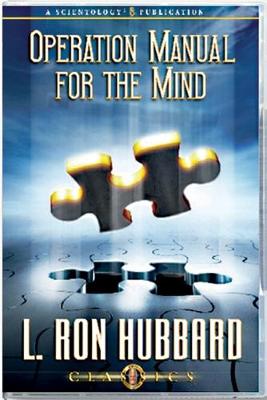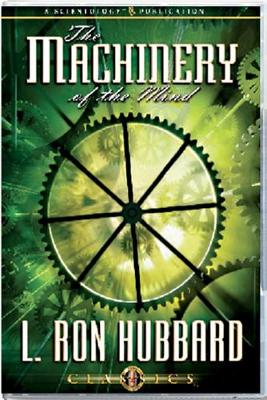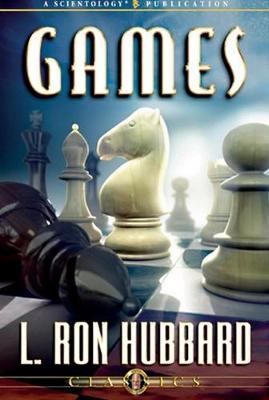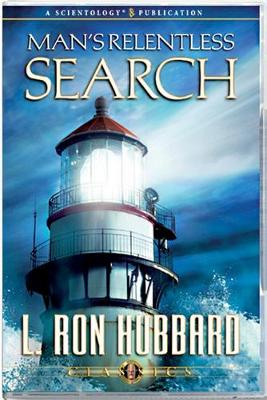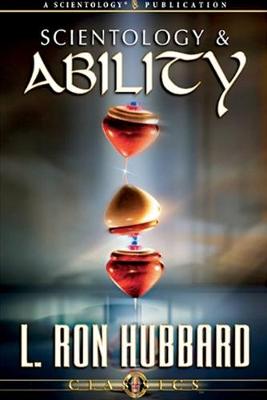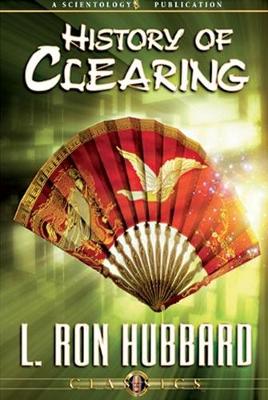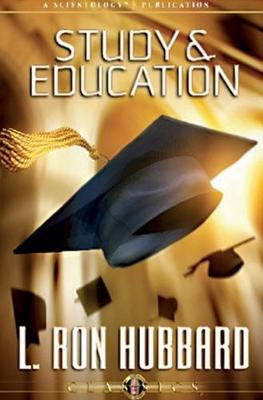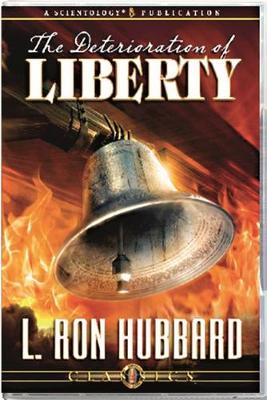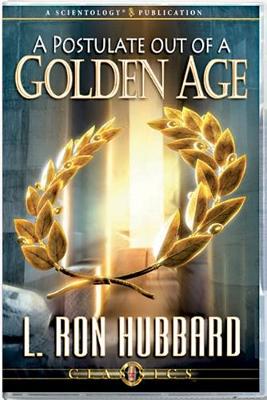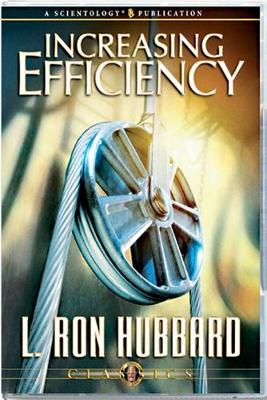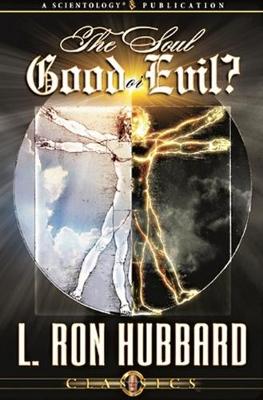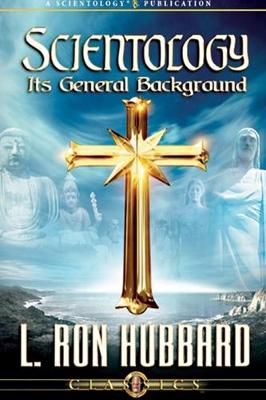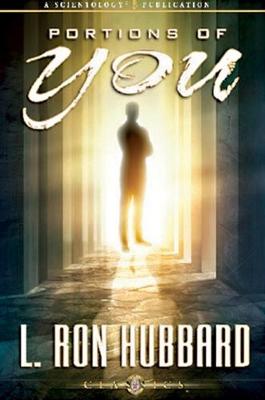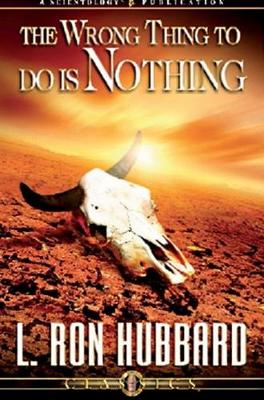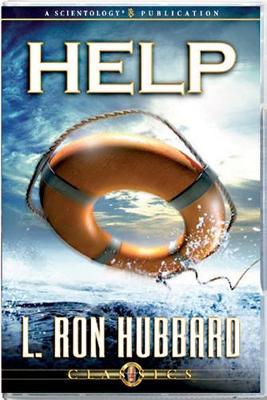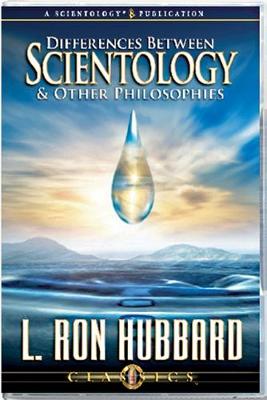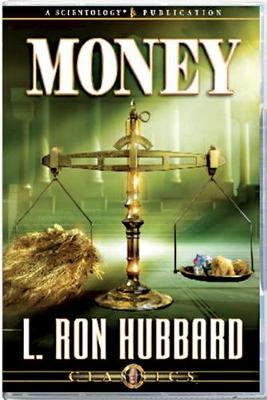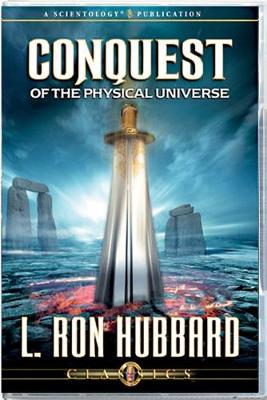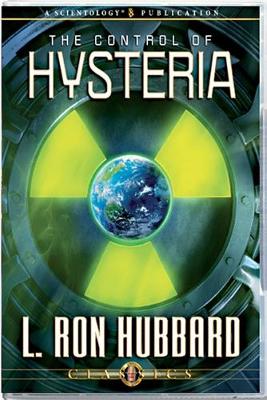Classic Lectures
26 total works
from tensions that interfere with work to conflicts that divide nations, virtually every human crisis can be traced to Man's ignorance of the mind.
Imagine, then, the potential benefits of finding the answers. Not only could organizations prosper and nations resolve their differences, but an
individual equipped with such knowledge, fully understanding himself and others, would stand a far better chance of achieving his goals. In fact, millions have accomplished exactly that. For the first time in history, Man has come into possession of an "operation manual" that
details the full anatomy of the mind and precisely how it functions. By studying this "manual," anyone can understand the underlying causes
behind the endless variety of human behavior and use this knowledge to resolve any situation he encounters in life. Here, then, is the adventure of discovering the workings of the most valuable commodity any individual will ever possess.
weeks of the book's initial publication, L. Ron Hubbard was traveling coast to coast, lecturing to tens of thousands of new readers on his discoveries and their application. To provide for still greater numbers he could not otherwise hope to reach, he soon directed the lectures be recorded so they could be further reproduced for one and all. So came his lecture to a packed Municipal Auditorium in Oakland, California. It stands today as the first recorded spoken word on the breakthrough technology of Dianetics.
Since then, decade after decade, Dianetics has continued to appear on bestseller lists world over with tens of millions of copies now in circulation. Moreover, the movement Dianetics inspired now spans every culture, across every continent,
in over 50 languages of Earth. As L. Ron Hubbard said in Dianetics: "You are beginning an adventure. Treat it as an adventure. And may you never be the same again." Here, then, is where that adventure began, an exploration into Terra
Incognita-the mind.
procedure. But what happens when someone puts a whole field of thought and action "on automatic"? His education, for example? Or his work? Or even his entire life? The answers are here and they open a completely new perspective on the mind. To the degree an individual has withdrawn from participation in an area of life, he substitutes an automatic mental mechanism for himself. Here, then, are these
mental mechanisms and exactly how they undermine an individual's power of decision. Toward returning him that power, Ron details how they can be recognized in a person's thoughts, acts and conversation, and thus detected in both oneself and others. And that is a crucial ability. For just as a real machine can spring free of its
operator and start running out of control, so can mental mechanisms. When that happens-beware! For, by controlling entire behavior patterns, the "machines" can actually deprive an individual of the ability to think and act for himself, without his even suspecting it.
Fortunately, there is a remedy and it lies in what Ron calls "the very central pin of existence," which every living being possesses and no mental mechanism can withstand. Thus one can gain control of the machinery of the mind and, by so doing, actually take charge of one's own life.
L. Ron Hubbard posed when setting out to unravel the riddle of human existence. After
examining all aspects and elements of existence, he arrived at an altogether startling discovery—one which suddenly clarified all life’s various phenomena: Life is a game. In this lecture, Ron explains why life is best understood
by likening it to a game, whereupon he defines both its prerequisites and conditions, showing that it follows the rules of any game. For regardless of what, where or how an individual plays the games of existence—and regardless of whether he consented to play—those rules
are always the same. And with everything L. Ron Hubbard puts on the board, he provides a completely new understanding of all that comprises human behavior. Here, then, is not
only the knowledge to play and win at a game of one’s own choosing, but how to help others play a better game too.
thereby to know himself-found its expression not only in philosophy and religion, but even in war and conquest. Yet in spite of, or perhaps because of, the crucial intensity of this quest, its
continuing failure down the centuries accumulated ever-deepening problems for
Man. Hence, in desperation, he eventually abandoned the search entirely-in 1879,
to be precise. And into the vacuum of its failure there stepped a new and deadly theory. Specifically, that "the other fellow" is no more than an aggregate of brain, blood and sinew, a stimulus-response mechanism that reacts to but is incapable of mastering its environment. As this concept gained strength, so declined the respect shown each individual and, with it, the sense of honor and purpose of Man as a whole. In interpreting this remarkable story, L. Ron Hubbard not only explains why Man's epic search met with failure for so long, he reveals the missing element that has finally brought success and solved the mystery of "the other fellow." For today, one can indeed know the truth about one's fellow human beings and, hence, come to understand oneself. And what that knowledge foretells for both the individual and Mankind is not only the recovery of respect, honor and purpose, but a level of success that exceeds anything previously attainable.
members of the psychology department to apply the principles of physics to the field of the mind.
It was an entirely novel approach. And when no one took up the challenge-either then or in later years-Ron undertook the task himself. Unlocking a wealth of answers about human
beings and their potentials, he did indeed resolve the long-standing riddle of the mind. With the discovery of its exact nature then came breakthrough after breakthrough, culminating in the first technology providing the means to greatly increased ability. Here, then, is the remarkable account of how L. Ron Hubbard bridged the gulf between two disciplines that occupied entirely separate worlds. In consequence, millions today are more happy, successful and able. For this is the adventure of Scientology.
fact, these Oriental holy men declined to use their considerable abilities to solve the real and urgent problems of living. Thereafter returning to
the United States, Ron encountered Western academia, representing a wholly dissimilar but, in a distinctly contrasting way, equally impractical world. Dominated by physical scientists and concentrated exclusively on
the interaction of matter, energy and space, it was a world where the spirit formed no part of the equation. Realizing the answers lay in neither of these irreconcilable schools, he embarked on the perilous quest for a way to free the individual from the barriers that deny him happiness. And in recognizing that Man is both a spiritual and a material being, he arrived at the breakthrough discovery from which all else followed. As he recounts the successive milestones along his path of research, what emerges is the monumental scope of an extraordinary victory-one that benefits all Mankind. Here, then, is the record of that victory and the historic achievement of a state never before known in this universe-a state called Clear.
understand and use information. What lies behind the crisis in education? Are some subjects simply hard to teach? Are some teachers just not good at imparting knowledge? The proposed solutions are as varied as the problems, but many are based on labeling students as unable to learn, instead of identifying the real failure. In researching the field of education over three decades, Ron examined the
entire learning process, very much including the ability to apply what has been taught. He made what amounts to an historic and broad sweeping breakthrough, isolating the single common denominator to the diverse problems besetting
all education. Rather than merely addressing a particular subject or branch of knowledge, he discovered a crucial undercut wholly omitted from educational systems since time immemorial. Specifically, there has never been an education in study itself. What Ron isolated and identified are the exact obstacles that deny
understanding of any subject, or more specifically, the barriers to study. With the new knowledge of how these barriers are the cause of failed education and its many consequences, Ron developed a fully workable solution-what has become known as Study Technology. Here, then, is the first actual technology of how to study any subject or field of endeavor and gain
the ability to use and apply what has been learned.
the dreams and goals of every human being. Yet its very power makes it liable to abusive ends entirely opposed to its true meaning. In consequence, both individual and national freedoms can be eroded in a manner that escapes detection. If this deterioration of liberty is not spotted and reversed, a people can lose many of their basic rights and ultimately fail to
recognize, and thus arrest, a slide into a police state. On the hard-won and cherished liberties of nations depends everything its citizens hold most dear. In affirming the basic decency and upholding the fundamental rights of each individual, Ron provides an embracive understanding that vitally concerns all.
organization and, indeed, the civilization depends. Those who accomplish more with less effort are more willing, more capable and, in fact, more efficient. They suffer less emotional stress and strain. They are better suited to make key decisions. And as efficiency increases across whole industries, so the whole of society benefits. Such is the subject of Increasing Efficiency, wherein L. Ron Hubbard reveals discoveries that provide a wholly new perspective on efficiency-not in a mechanical sense, but in terms of thought, emotion and effort. Moreover, here is the explanation of why an address to thought is of paramount importance, in that thought alone can change emotion and effort. In full, then, contained within this lecture is the "secret" of efficiency and the very means of overcoming the vagaries of emotion and the effort of work.
either ignored it or denied its very existence.
The human soul. Here, then, is a discovery all the more remarkable for being grounded not merely on faith and belief, but on proofs as irrefutable as any in science. Using the most exact tools of thought to isolate the most inexactly understood aspect of a human being, Ron established that there is, indeed, a soul. Moreover, the knowledge of its nature and characteristics finally resolves the age‑old
question of good and evil, not only in regard to a future life, but with immediate application in the here and now. For with the answer to the greatest of all mysteries has come an entirely new understanding and, with that, the means to raise one’s ability to play the game called “life.”
Man and the material universe. Based not on faith or belief but on axioms as precise and workable as any in science, it has been conclusively determined that the life-giving unit preceded matter, energy, space and time. From that perspective, here are the infinite ways in which an individual endows his own environment with life. From physical well-being to the state of civilization, these principles are in continuous
operation-every hour, every day. Understood and applied by a single individual, they lead to a far better life. Applied by everyone, they would lead to a far better world.
headlong toward an uncertain future, how can a single individual control his own fate? How can he safeguard the well-being of his family, the
prosperity of his group and the security of his nation? Must he mutely await the next unforeseen blow, which might well signal the end of all dreams and aspirations? Or should he endeavor by whatever means, through whatever
plan, to secure the future for those he cherishes and the society in which he lives? Here, then, is Ron's unforgettable answer to such questions. What he reveals is not only a principle that
spells the difference between success and failure in every aspect of life, it is also a fundamental truth by which we can guarantee our future survival as individuals, groups, nations and Mankind as a whole.
disabilities, accidents, criminality and social disturbance can be understood within its frame of reference. Thus, quite in addition to their benefits for a single individual is the enormous value of these discoveries for communities as a whole. A society that understands and applies the principles L. Ron Hubbard delineates will accomplish a tremendous resurgence in the capabilities of its people, thereby elevating the entire civilization. Here, then, are newly discovered and powerful truths with an almost unlimited potential for good.
for many thousands of years, countless philosophical and religious teachings have sought to enlighten people with answers. But where their practitioners insisted-indeed, demanded-that their answers must be the
answers, they blocked the road to greater freedom for millions of people. For as history tells, to force an individual to accept a truth instead of permitting him to find truth is a road not to freedom, but to slavery of thought and belief. In this classic statement on the individual's search for truth, Ron therefore
delineates the central principles that make Scientology different-the principles whereby each person engages in his own personal search to discover truth. As individuals continue on this unique quest of exploration and adventure, they acquire new insights and understandings until their fundamental questions about themselves and life are resolved to their full satisfaction. And increasingly, as they travel that road, they attain the lasting freedom that can only come from knowing what is true for them.
Judging from the duress and anxiety associated with this subject, few people are aware of the real purpose and function of money. Here L. Ron Hubbard delineates its proper role in assisting the survival of individuals, groups and cultures. As he strips away the complexities accumulated over the centuries to prevent anyone outside an “inner sanctum” from really grasping its purpose and function, the entire subject clarifies and focuses. And what becomes clear is that money owes its unsavory reputation not to its use, but to its abuse. Once understood for what it is, money assumes its correct place as but one element—albeit an important one—contributing to individual, organizational and national survival.
Here, then, is an entirely new look, demystifying a subject and commodity that everyone depends upon. And as for what follows from that, listen and see.
phenomena of human experience-from the "inexplicable" onset of illness to why individuals brimming with ambition and hope often reach the end of their lives defeated and disillusioned. In this lecture, Ron reveals that life is an energy, one entirely separate and distinct from the physical universe. Moreover, here too are the answers to how life attempts its conquest of matter, energy, space and time. As for what these discoveries mean to everyday life of the individual, the answer is everything. For no matter one's occupation or activities, here are
both the anatomy and ramifications of the unavoidable interaction with the physical universe. And by means of this knowledge, one can reverse one's losses, build upon one's victories and, in sum, recover the energy and enthusiasm that brings lasting success.
effects of the radiation that would creep across continents? Or does the actual cause lie elsewhere? In a message of compelling urgency, Ron not only answers these questions, but also shows how to resolve the situation at its very core. For the most fundamental danger of all lies not in the weapons themselves, but in the barbarity that would drive men to deploy them against their fellows. To assist both individuals and governments not only to maintain stability, but to defeat their real enemies-disease, the elements and Man's own unreason-L. Ron Hubbard sets out a humanitarian program vital to all. Applied broadly, it could raise Man to a high enough level of understanding that individuals could live their lives free not only from war and the fear of war, but free even from the possibility that a war could ever again occur.
